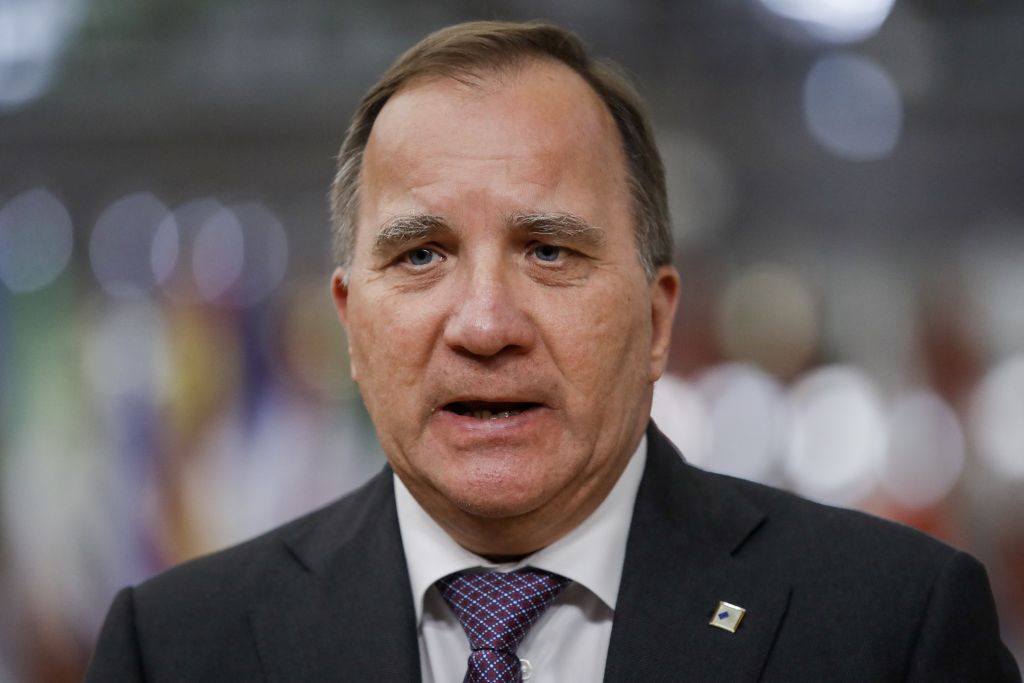
Sweden’s fragile ruling coalition looks increasingly shaky after a leftist party won support from the conservative opposition to push through a motion of no confidence against Prime Minister Stefan Lofven.
The Left Party, which isn’t part of the government, appears to have the backing of the Moderates, the Christian Democrats and the Sweden Democrats to oust Lofven’s minority coalition. The challenge is turning into the most serious threat yet to Sweden’s government, which was formed after an inconclusive election result in 2018.
The dispute centers on plans by Lofven’s Social Democrats to let landlords charge market rates for new rental apartments. The Left has slammed the proposal, which it says lets down the tenants the government should be protecting. The center-right parties, meanwhile, are just eager to see Lofven go, even though they traditionally embrace deregulation.
A no confidence motion formally put forward by the anti-immigration Sweden Democrats is now set to be held on June 21. If successful, it would topple the coalition of Social Democrats and Greens that’s ruled for 2 1/2 years with the support of two center-right parties. From the get-go, the alliance has been an uneasy one, and analysts suggested that it may now be testing its limits.
“This is serious and there is a large probability that the no confidence vote will be passed,” said Jenny Madestam, an associate professor of political science at the Swedish Defense University.
But rather than lose a no-confidence vote, the prime minister might opt for snap elections, she said. “Stefan Lofven hasn’t shied away from announcing an extra election before … so it wouldn’t surprise me if he fights fire with fire.”
There’s still a chance Lofven might be able to strike a last-minute deal to get the Left Party to back down, but his options are limited. His coalition relies on the continued support of the Left, which is pro-regulation, and of a more conservative faction that wants deregulation.
At Nordea Bank, the view is that Lofven will be able to resolve the dispute through talks between now and Monday. “There will probably be negotiations in the coming days between the government and the Left Party,” said Torbjorn Isaksson, an economist at Nordea in Stockholm. “A likely scenario is that these negotiations will result in a compromise, which in turn means that the Left Party will abstain on the no-confidence vote.”
Ultimately, the latest development shows how frayed Swedish politics have become since the rise of the Sweden Democrats prevented the country’s traditional blocs from forming their own majorities. The Sweden Democrats hold just under one-fifth of the seats in the country’s parliament.
The krona weakened as much as 0.6% against the euro and fell 1.1% versus the dollar on Thursday. “It is not entirely unlikely” that krona trading will start to reflect the political uncertainty, said Jesper Petersen, an analyst at Danske Consensus in Stockholm. “In the short term, it is definitely something that can weigh on the krona.”
—With assistance from Rafaela Lindeberg.
More Must-Reads from TIME
- Cybersecurity Experts Are Sounding the Alarm on DOGE
- Meet the 2025 Women of the Year
- The Harsh Truth About Disability Inclusion
- Why Do More Young Adults Have Cancer?
- Colman Domingo Leads With Radical Love
- How to Get Better at Doing Things Alone
- Michelle Zauner Stares Down the Darkness
Contact us at letters@time.com